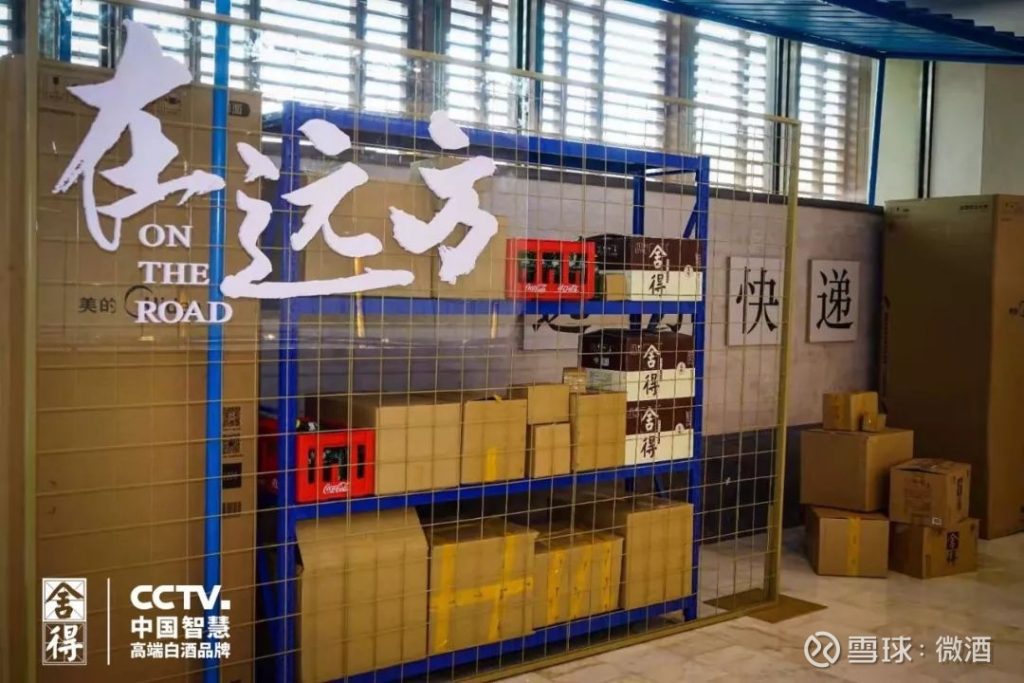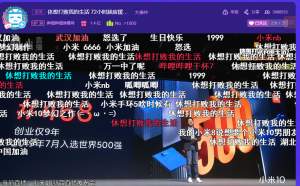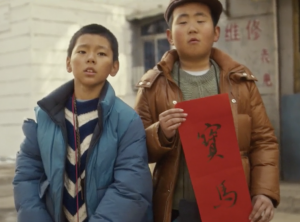
“On the Road” featured the most brand involvement among new dramas that aired in September
News From China
A total of 32 new dramas were released in September, but relatively few had product placements, perhaps because much of the content, focused on marking the 70th anniversary of the People’s Republic of China, had little commercial appeal. Of the 23 online dramas, only 4 had product placements, while 3 of the 9 new dramas on TV featured brands on screen. The patriotic drama “On the Road” (在远方) about the rise of an express delivery firm, scored the most product placements with 11. The She De liquor brand was highlighted as a particularly successful brand integration, as it was featured in many scenes with meals and other social gatherings.
On the reality programming front, there were only 13 new shows, with 9 of the 10 network shows garnering sponsors, but none of the 3 online-only shows securing sponsors. “We Are in Love” (我们恋爱吧), a romantic reality show set on a cruise ship jointly broadcast by Jiangsu Satellite TV and Youku, had the most sponsors with 7, including a1 Cloud Cake as the title sponsor.
The combination of livestreaming and e-commerce has become an incredibly potent driver of sales for brands, as platforms that initially focused solely on e-commerce, shopping, livestreaming, or short video all race to develop additional capabilities.
- Taobao expects to have 300,000 professional e-commerce hosts on its livestreaming platform within the next three years.
- On shopping app Mogujie, live broadcasts account for nearly 80% of gross merchandise volume.
- More celebrities are joining KOLs to host livestreaming broadcasts for brands, selling thousands of products per second.
- Bigger name brands that previously shunned livestreaming have started to engage with top sellers such as Viya, who is reported to have worked with more than 5,000 brands, including Unilever and Procter & Gamble.
- The popularity of e-commerce livestreaming is driven by the depth of product information made available and social aspects, such as the opportunities to interact with celebrities and KOLs.
Chevrolet has released a limited edition customized Trax model in collaboration with Chinese League of Legends esports team Invictus Gaming (IG), following on the agreement it reached earlier this year to sponsor the team. The model, limited to 1,000 units, features IG’s name and logos across the vehicle. An initial 88 cars were released for sale on Tmall, and Chevrolet is offering buyers a low down-payment option and IG team kits to promote sales.
While McDonald’s may have been the only brand to score a significant product placement in the Dreamworks Animation-Pearl Studio co-production” Abominable,” several other brands had notable collaborations with the China-oriented film:
- Beauty brand Chando promoted new natural herbal facial masks and sponsored a trail running event with a yeti character cheering runners on.
- Huazhu Hotels, which also had its brand appear in the film, designed themed “parent-child” rooms in its properties with decor featuring characters from the film.
- Mead Johnson released an infant formula commercial created by Pearl Studio using “Abominable” IP.
- Mini1 Games featured content from the movie in its game.
News in English
- It was a stormy week for foreign brands in China, with constantly shifting boundaries on what can be deemed acceptable behavior by those that want to do business in the country. The NBA standoff over Houston Rockets GM Daryl Morey’s pro-Hong Kong protest tweet died down somewhat after an initial blackout of NBA games by Chinese state TV and streaming partner Tencent. Chinese brands rushed to cut ties with the NBA, but two pre-season games in China went on as scheduled, and Tencent has resumed streaming games (minus the Rockets). SCMP
- Activision Blizzard backtracked on its punishment of a Hong Kong-based player and two casters who had expressed support for the protests on air, following a huge outcry from the gaming community outside of China. Washington Post
- Epic Games CEO Tim Sweeney took a preemptive stand by declaring that the company “supports the rights of Fortnite players and creators to speak about politics and human rights,” despite Tencent holding a 40% stake in the firm. Polygon
- TikTok is facing a call from U.S. Senator Marco Rubio for a formal inquiry into whether its censorship practices pose a national security risk, as its parent Bytedance’s 2017 acquisition of the U.S.-based Musical.ly, which was merged with TikTok, could be subject to a retroactive review by the Committee on Foreign Investment in the United States. The Verge
- A leaked pitch deck shows what TikTok can offer brands and how much it costs. Starting at $25,000 per day, current ad options include brand takeovers, hashtag challenges, in-feed videos, branded AR lenses, and custom influencer packages. Ad Age
- China’s short video apps, such as Douyin and Kuaishou, offer more than just silly videos. They are becoming educational platforms as well, with Douyin boasting more than 54,000 “knowledge creators” with more than 10,000 followers. Xinhua
- Bytedance is looking to expand the application of its AI to gaming, as it establishes game development teams in five Chinese cities following its acquisitions of two game publishers and the launch of its own gaming project earlier this year. KrAsia
We’ve Got China Covered






